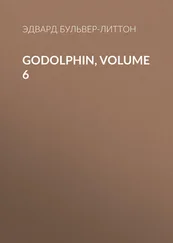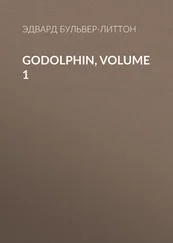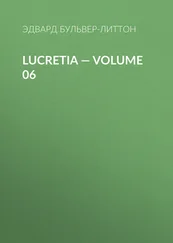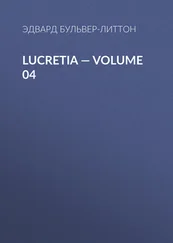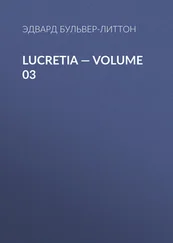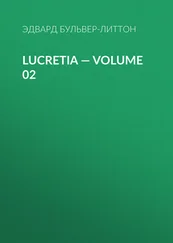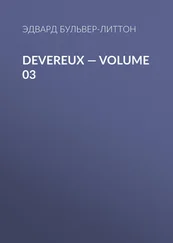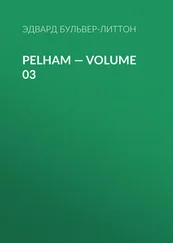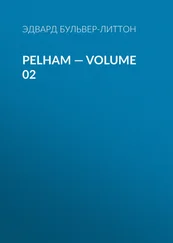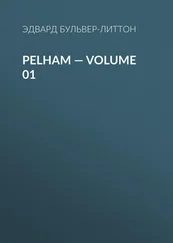Эдвард Бульвер-Литтон - My Novel — Volume 09
Здесь есть возможность читать онлайн «Эдвард Бульвер-Литтон - My Novel — Volume 09» — ознакомительный отрывок электронной книги совершенно бесплатно, а после прочтения отрывка купить полную версию. В некоторых случаях можно слушать аудио, скачать через торрент в формате fb2 и присутствует краткое содержание. Жанр: foreign_prose, literature_19, Европейская старинная литература, foreign_antique, на английском языке. Описание произведения, (предисловие) а так же отзывы посетителей доступны на портале библиотеки ЛибКат.
- Название:My Novel — Volume 09
- Автор:
- Жанр:
- Год:неизвестен
- ISBN:нет данных
- Рейтинг книги:3 / 5. Голосов: 1
-
Избранное:Добавить в избранное
- Отзывы:
-
Ваша оценка:
- 60
- 1
- 2
- 3
- 4
- 5
My Novel — Volume 09: краткое содержание, описание и аннотация
Предлагаем к чтению аннотацию, описание, краткое содержание или предисловие (зависит от того, что написал сам автор книги «My Novel — Volume 09»). Если вы не нашли необходимую информацию о книге — напишите в комментариях, мы постараемся отыскать её.
My Novel — Volume 09 — читать онлайн ознакомительный отрывок
Ниже представлен текст книги, разбитый по страницам. Система сохранения места последней прочитанной страницы, позволяет с удобством читать онлайн бесплатно книгу «My Novel — Volume 09», без необходимости каждый раз заново искать на чём Вы остановились. Поставьте закладку, и сможете в любой момент перейти на страницу, на которой закончили чтение.
Интервал:
Закладка:
The house Randal had selected pleased Riccabocca at first glance. It stood alone, upon a little eminence; its upper windows commanded the high road. It had been a school, and was surrounded by high walls, which contained a garden and lawn sufficiently large for exercise. The garden doors were thick, fortified by strong bolts, and had a little wicket lattice, shut and opened at pleasure, from which Jackeymo could inspect all visitors before he permitted them to enter.
An old female servant from the neighbourhood was cautiously hired; Riccabocca renounced his Italian name, and abjured his origin. He spoke English sufficiently well to think he could pass as an Englishman. He called himself Mr. Richmouth (a liberal translation of Riccabocca). He bought a blunderbuss, two pairs of pistols, and a huge housedog. Thus provided for, he allowed Jackeymo to write a line to Randal and communicate his arrival.
Randal lost no time in calling. With his usual adaptability and his powers of dissimulation, he contrived easily to please Mrs. Riccabocca, and to increase the good opinion the exile was disposed to form of him. He engaged Violante in conversation on Italy and its poets. He promised to bring her books. He began, though more distantly than he could have desired,—for her sweet stateliness awed him,—the preliminaries of courtship. He established himself at once as a familiar guest, riding down daily in the dusk of evening, after the toils of office, and returning at night. In four or five days he thought he had made great progress with all. Riccabocca watched him narrowly, and grew absorbed in thought after every visit. At length one night, when he and Mrs. Riccabocca were alone in the drawing-room, Violante having retired to rest, he thus spoke as he filled his pipe,—
"Happy is the man who has no children! Thrice happy he who has no girls!"
"My dear Alphonso!" said the wife, looking up from the waistband to which she was attaching a neat mother-o'-pearl button. She said no more; it was the sharpest rebuke she was in the custom of administering to her husband's cynical and odious observations. Riccabocca lighted his pipe with a thread paper, gave three great puffs, and resumed,
"One blunderbuss, four pistols, and a house-dog called Pompey, who would have made mincemeat of Julius Caesar!"
"He certainly eats a great deal, does Pompey!" said Mrs. Riccabocca, simply. "But if he relieves your mind!"
"He does not relieve it in the least, ma'am," groaned Riccabocca; "and that is the point I am coming to. This is a most harassing life, and a most undignified life. And I who have only asked from Heaven dignity and repose! But if Violante were once married, I should want neither blunderbuss, pistol, nor Pompey. And it is that which would relieve my mind, cara mia,—Pompey only relieves my larder."
Now Riccabocca had been more communicative to Jemima than he had been to Violante. Having once trusted her with one secret, he had every motive to trust her with another; and he had accordingly spoken out his fears of the Count di Peschiera. Therefore she answered, laying down the work, and taking her husband's hand tenderly,
"Indeed, my love, since you dread so much (though I own that I must think unreasonably) this wicked, dangerous man, it would be the happiest thing in the world to see dear Violante well married; because, you see, if she is married to one person she cannot be married to another; and all fear of this count, as you say, would be at an end."
"You cannot express yourself better. It is a great comfort to unbosom one's-self to a wife, after all," quoth Riccabocca.
"But," said the wife, after a grateful kiss,—"but where and how can we find a husband suitable to the rank of your daughter?"
"There! there! there!" cried Riccabocca, pushing back his chair to the farther end of the room, "that comes of unbosoming one's-self! Out flies one secret; it is opening the lid of Pandora's box; one is betrayed, ruined, undone!"
"Why, there's not a soul that can hear us!" said Mrs. Riccabocca, soothingly.
"'That's chance, ma'am! If you once contract the habit of blabbing out a secret when nobody's by, how on earth can you resist it when you have the pleasurable excitement of telling it to all the world? Vanity, vanity,— woman's vanity! Woman never could withstand rank,—never!" The doctor went on railing for a quarter of an hour, and was very reluctantly appeased by Mrs. Riccabocca's repeated and tearful assurances that she would never even whisper to herself that her husband had ever held any other rank than that of doctor. Riccabocca, with a dubious shake of the head, renewed,
"I have done with all pomp and pretension. Besides, the young man is a born gentleman: he seems in good circumstances; he has energy and latent ambition; he is akin to L'Estrange's intimate friend: he seems attached to Violante. I don't think it probable that we could do better. Nay, if Peschiera fears that I shall be restored to my country, and I learn the wherefore, and the ground to take, through this young man—why, gratitude is the first virtue of the noble!"
"You speak, then, of Mr. Leslie?"
"To be sure—of whom else?"
Mrs. Riccabocca leaned her cheek on her hand thoughtfully. "Now you have told me that, I will observe him with different eyes."
"Anima mia, I don't see how the difference of your eyes will alter the object they look upon!" grumbled Riccabocca, shaking the ashes out of his pipe.
"The object alters when we see it in a different point of view!" replied Jemima, modestly. "This thread does very well when I look at it in order to sew on a button, but I should say it would never do to tie up Pompey in his Kennel."
"Reasoning by illustration, upon my soul!" ejaculated Riccabocca, amazed.
"And," continued Jemima, "when I am to regard one who is to constitute the happiness of that dear child, and for life, can I regard him as I would the pleasant guest of an evening? Ah, trust me, Alphonso; I don't pretend to be wise like you; but when a woman considers what a man is likely to prove to woman,—his sincerity, his honour, his heart,—oh, trust me, she is wiser than the wisest man!"
Riccabocca continued to gaze on Jemima with unaffected admiration and surprise. And certainly, to use his phrase, since he had unbosomed himself to his better half, since he had confided in her, consulted with her, her sense had seemed to quicken, her whole mind to expand.
"My dear," said the sage, "I vow and declare that Machiavelli was a fool to you. And I have been as dull as the chair I sit upon, to deny myself so many years the comfort and counsel of such a—But, /corpo di Bacco!/ forget all about rank; and so now to bed.—One must not holloa till one's out of the wood," muttered the ungrateful, suspicious villain, as he lighted the chamber candle.
CHAPTER III
RICCABOCCA could not confine himself to the precincts within the walls to which he condemned Violante. Resuming his spectacles, and wrapped in his cloak, he occasionally sallied forth upon a kind of outwatch or reconnoitring expedition,—restricting himself, however, to the immediate neighbourhood, and never going quite out of sight of his house. His favourite walk was to the summit of a hillock overgrown with stunted bush-wood. Here he would sit himself musingly, often till the hoofs of Randal's horse rang on the winding road, as the sun set, over fading herbage, red and vaporous, in autumnal skies. Just below the hillock, and not two hundred yards from his own house, was the only other habitation in view,—a charming, thoroughly English cottage, though somewhat imitated from the Swiss, with gable ends, thatched roof, and pretty, projecting casements, opening through creepers and climbing roses. From his height he commanded the gardens of this cottage, and his eye of artist was pleased, from the first sight, with the beauty which some exquisite taste had given to the ground. Even in that cheerless season of the year, the garden wore a summer smile; the evergreens were so bright and various, and the few flow ers still left so hardy and so healthful. Facing the south, a colonnade, or covered gallery, of rustic woodwork had been formed, and creeping plants, lately set, were already beginning to clothe its columns. Opposite to this colonnade there was a fountain which reminded Riccabocca of his own at the deserted Casino. It was indeed singularly like it; the same circular shape, the same girdle of flowers around it. But the jet from it varied every day, fantastic and multiform, like the sports of a Naiad,—sometimes shooting up like a tree, sometimes shaped as a convolvulus, sometimes tossing from its silver spray a flower of vermilion, or a fruit of gold,—as if at play with its toy like a happy child. And near the fountain was a large aviary, large enough to enclose a tree. The Italian could just catch a gleam of rich colour from the wings of the birds, as they glanced to and fro within the network, and could hear their songs, contrasting the silence of the freer populace of air, whom the coming winter had already stilled.
Читать дальшеИнтервал:
Закладка:
Похожие книги на «My Novel — Volume 09»
Представляем Вашему вниманию похожие книги на «My Novel — Volume 09» списком для выбора. Мы отобрали схожую по названию и смыслу литературу в надежде предоставить читателям больше вариантов отыскать новые, интересные, ещё непрочитанные произведения.
Обсуждение, отзывы о книге «My Novel — Volume 09» и просто собственные мнения читателей. Оставьте ваши комментарии, напишите, что Вы думаете о произведении, его смысле или главных героях. Укажите что конкретно понравилось, а что нет, и почему Вы так считаете.

